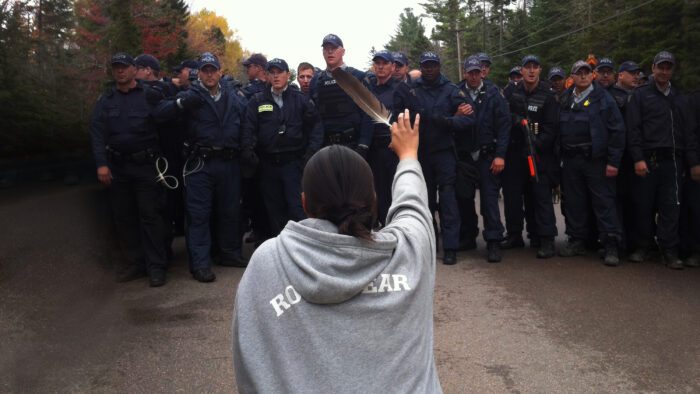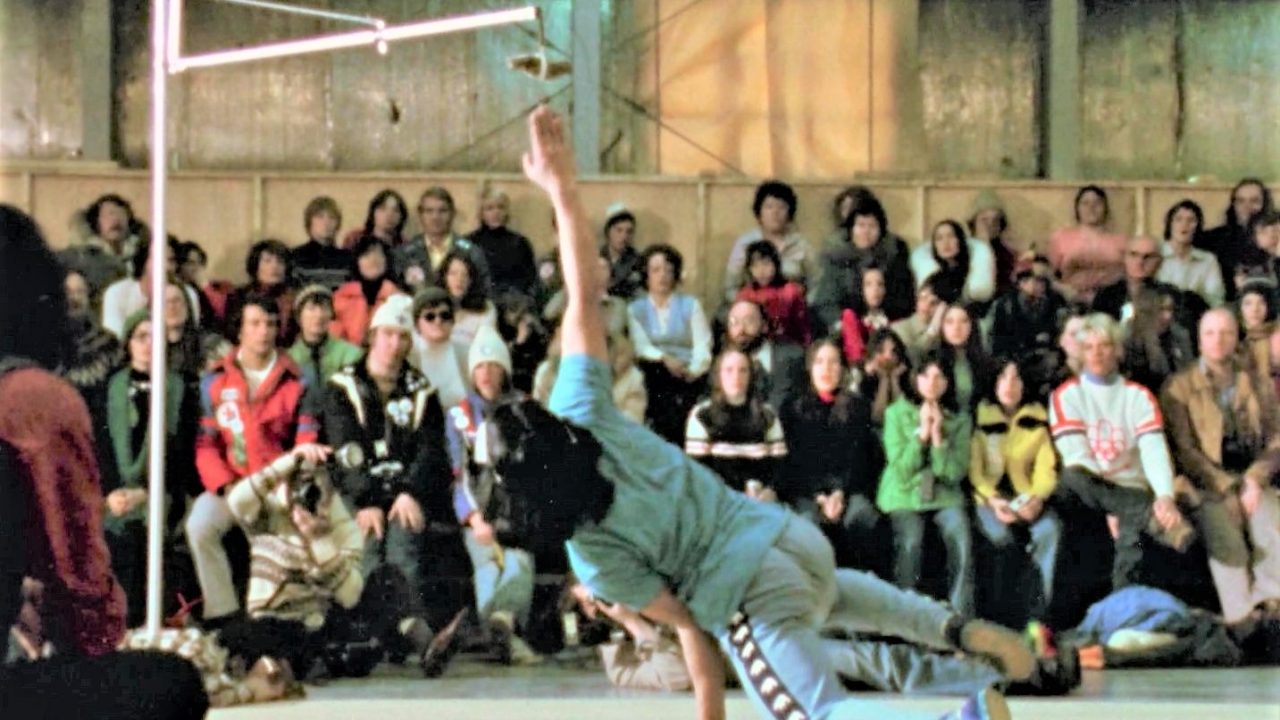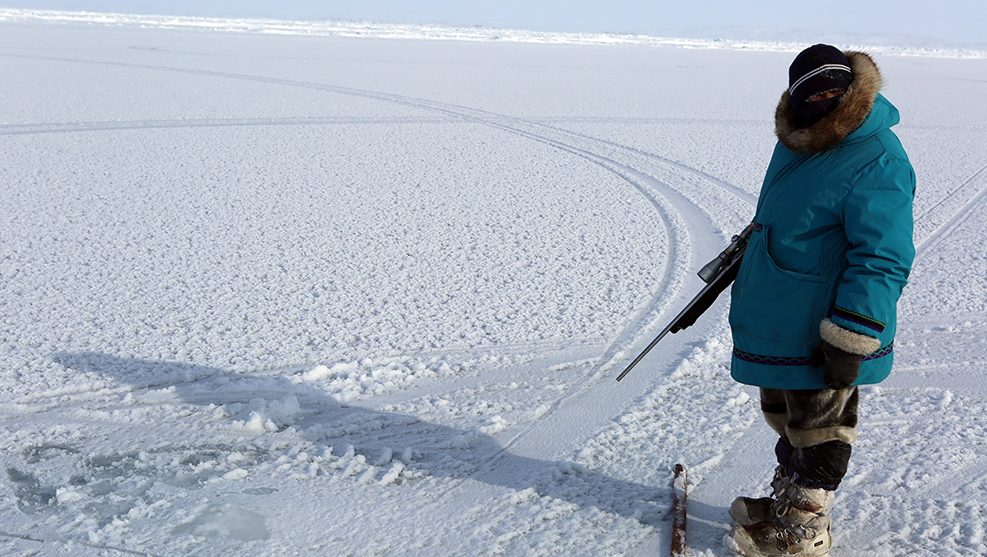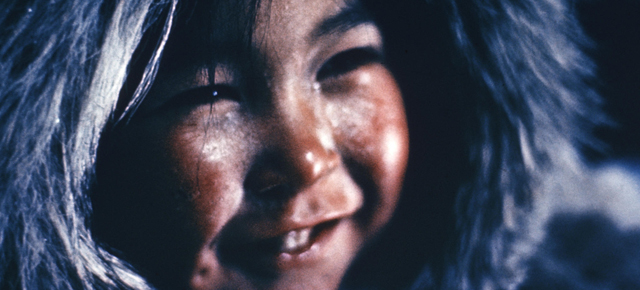
Interpreting the North: An interview with Joe Otokiak
Interpreting the North: An interview with Joe Otokiak
Seeing we seem to be on a confession roll here, I don’t see much point in withholding the following information from you guys. Friends, readers – I’m a huge nerd.
Now, that wouldn’t be so bad if I was super nerdy about this one thing, like say, brain surgery, or microfinance, or even astrophysics. Nerdery would make sense, then. I could be called things like “cognoscente”, and “virtuoso” and “connoisseur” and “rich”.
But no. It turns out I was cursed with the kind of nerdery that’s not monomaniac at all but rather all over the place. That is, all over the weird places. I’m nerdy about hippie food (annoying at the office), I’m nerdy about Ottoman art and history (?), I’m nerdy about reggae music (oh whatever, just dance).
But say I was forced to say which branch of nerdiness most defines me (an unlikely scenario, I’m aware), I’d have to say that first and foremost, I’m a language nerd. Way back when my linguistics degree was only a twinkle in my parents’ savings account, I already entertained the insanely bright-eyed and bushy-tailed ambition of saving the world’s endangered languages and dialects from slipping into mute oblivion.
Language! I heard it calling! I imagined myself as some sort of Indiana Jane, crisscrossing savannahs, slums, tundras, recorder in hand, organizing meetings between the 2 last speakers of a vanishing tongue, and archiving the banter for posterity. And lullabies, oh the tragedy of a lullaby sung for the very last time! Because languages are worldviews, see. A language dying is like an entire self-contained philosophy, a unique experience of the world disappearing from the human heritage altogether. In other words, a tragedy. No joke, guys. This stuff used to keep me up at night.
So, in short (well, I tried), when my colleague Julie Huguet, with whom I traveled to Iqaluit last fall, came in my office to tell me that an Inuit dialect specialist was in the building, dubbing some of our Unikkausivut films from Inuktitut to Innuinnaqtun, a dialect spoken in Western Nunavut, I flew to the recording studio for a chat.
There, I met Joe Otokiak, 57, who was taking a short break from the task at hand: producing voices for different male characters in the Netsilik and Tuktu series. (First shot in Inuktitut, these films are now being dubbed in Innuinnaqtun for use by the Nunavut Government’s Department of Education.) I pulled up a chair and asked him a couple (nerdy) questions. Here’s some of what we discussed.
Carolyne Weldon: How is Innuinnaqtun doing?
Joe Otokiak: Innuinnaqtun is still alive and well. Still lots of elders are monolingual in that language. It’s my mother tongue… I speak it!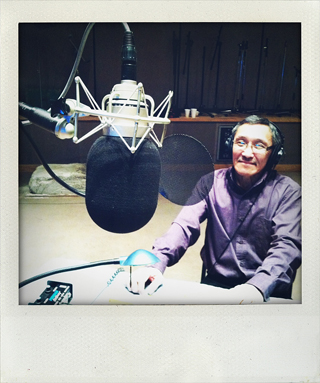
CW: That being the case, how did you learn Inuktitut?
JO: By paying attention. The root words in both dialects are the same. There are some prefixes and suffixes changes, but ultimately the 2 are very similar.
CW: When did you start doing this sort of work, dubbing and that?
JO: 12-13 years ago? Someone in the community needed a hand to translate our Land Claim Agreements. It was far too big a task for one person, so it was separated in chunks and different people worked on different parts. What I found was that I was able to do it! I started to enjoy it. I enjoyed being able tell someone who didn’t understand what something means, especially unilingual Inuit. I eventually picked up simultaneous interpretation. In conferences up North, often times there will be a speaker who doesn’t speak Inuktitut and needs to be understood in real time.
CW: Hold on a second – you just “picked up” simultaneous interpretation?! Are you aware people go to school and do intense training for that?
JO: That’s news to me. That’s the first time I heard of that. I just did it, never thought much about it. I guess you could say I was a natural at it?
CW: I guess we could say that…
JO: I remember the Coop’s annual general meeting, in Cambridge Bay. The meetings used to be 6 hours long. Let’s say we started as 7 pm, we’d often still be there come 3 am. They were doing consecutive interpretation back then, where one speaker says something, and the other translates afterwards. Now with me doing simultaneous interpretation, we can wrap the meetings up in 3 hours – 7-10pm! It’s been a huge time saver.
CW: See! Simultaneous translation is hard. Else why did no one do it at the AGM before you…
JO: I guess they never tried.
CW: So you mainly live off these contracts now or do you also have another job on the side?
JO: Right now it’s my main source of income. I get to pick and choose the projects I want to work on. Also, I’m able to take a break when I like. It’s not an 8-to-5 job. It gives you a lot more freedom. It’s more enjoyable work. It’s also good because people get to hear the language. That is a further step toward preserving Innuaqtun, which was almost extinct for a time. Now our elders have gotten together and are working on revitalizing it. These films are part of that process. Hopefully, the youths will hear it and want to use it. It will be useful down the road. Especially in schools, I think. This stuff it’s the gravy. Of course you need the English, the math and the science. But this is the gravy on top. These films will let them know what their people went through, you know. What people like my parents went through, out on the land.
Tuktu and his Eskimo Dogs, Laurence Hyde, provided by the National Film Board of Canada
